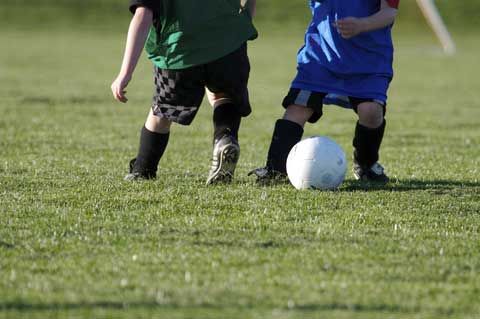Want Passionate Kids? Leave 'em Alone

Parents who want their children to discover a passion for music, sports, or other hobbies should follow a simple plan: Don't pressure them.
By allowing kids to explore activities on their own, parents not only help children pinpoint the pursuit that fits them best, but they can also prevent young minds from obsessing over an activity, a new study finds.
"Passion comes from a special fit between an activity and a person," said Geneviève Mageau, a psychology professor at the University of Montreal. "You can't force that fit; it has to be found."
The study focused on what psychologists call autonomy, the basic need to feel like you're acting based on your own values and desires, not those of others. Controlling parents chip away at their child's autonomy, by pushing them into a hobby, the researchers say. So when the kid picks up his clarinet it's not out of a desire to play music, but due to a sense of obligation or a fear of disappointing his parents, according to Mageau.
To connect passion to autonomy, Mageau and colleagues performed three studies in which they surveyed hundreds of athletes and musicians ages 6 to 38 with different skill levels.
The surveys asked questions about the subjects' level of passion, such as how often they practiced a hobby or how much they loved it. The psychologists then measured how much volunteers agreed with statements such as, "I have a tough time controlling my need to do this activity" to determine if their passion was obsessive and interfering with other aspects of their lives. To measure autonomy, the researchers also asked participants whether they agreed with statements such as, "I have a say in what happens and can voice my opinions regarding my activity."
In one study, the researchers followed 196 middle-school students as they picked up a musical instrument for the first time. After five months, the psychologists found that one major variable that predicted whether children developed a passion for music was if their parents allowed them the freedom to practice on their own schedule. The passionate kids on average scored 9 percent greater on the autonomy scale than the non-passionate kids, which is a big effect in a psychology study, Mageau said.
Sign up for the Live Science daily newsletter now
Get the world’s most fascinating discoveries delivered straight to your inbox.
The two other studies also showed that children who had little autonomy but did develop a passion for an activity were more likely than others to take it too far, becoming obsessed with the hobby.
Not only could these children miss out on truly enjoying their hobby, the result could grate on their self-esteem, according to the researchers. Obsessively passionate people attach their self-esteem to the pastime: If they play the clarinet flawlessly one night, they feel great, but if they miss a note, they can get depressed.
One of the three studies involved swimmers, skiers and musicians performing at a national level. Results showed that the participants' level of autonomy best predicted if they had an obsessive passion compared to a harmonious one, with higher autonomy linked with harmonious passions. This freedom mattered more than the child's own desire to specialize in their hobby.
The difference between forming a healthy and an unhealthy passion is to strike a balance between, say, the clarinet and hanging out with friends. "They don't see [the activity] as defining their whole self," Mageau said. "It's a big part of who they are, but they have other interests too."
But the study's results don't mean parents should let their kids run wild.
"I'm not telling parents to let their kids do whatever they want without limits," Mageau said. "The most important message is to focus on the child's interests and not to impose one's own on them."
- Kids on Tighter Leash, But Wild at Home
- Poll: Do Children Have Too Much Freedom These Days?
- Is Modern Society Ruining Childhood?












